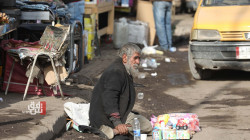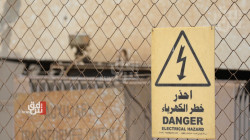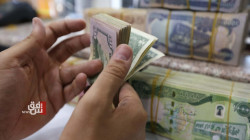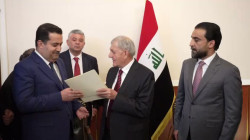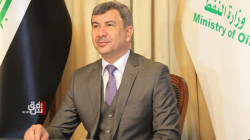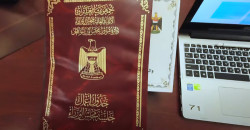Rising tide of leaked audio: A new era of digital political sabotage in Iraq
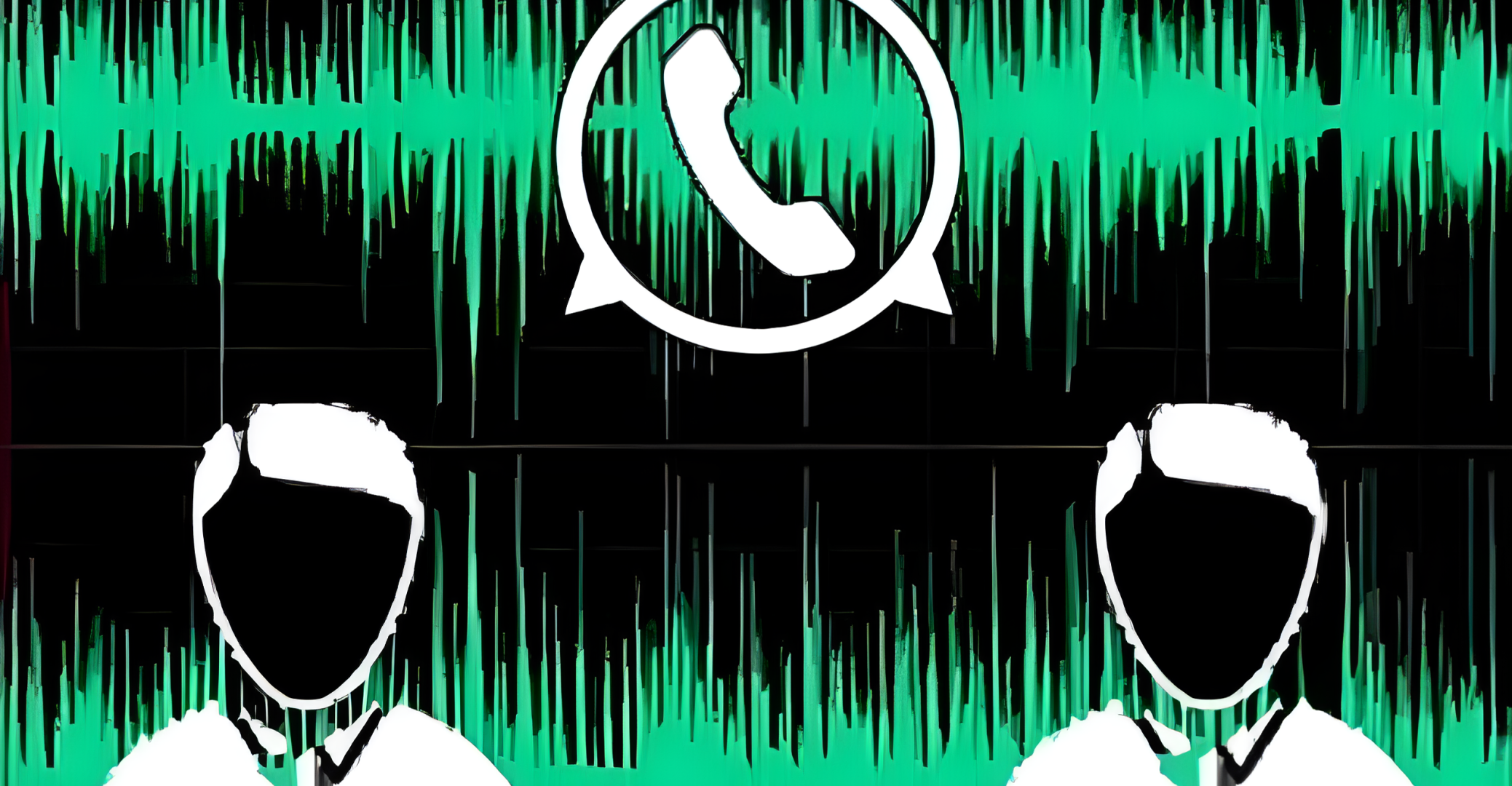
Shafaq News/ In recent weeks, Iraq has been rocked by a series of audio leaks, casting a harsh spotlight on the country's political elite, with allegations of corrupt practices, dubious financial dealings, and other misconduct fueling widespread public outrage.
Rising Tide of Leaked Audio
A series of controversial audio recordings have recently emerged on social media and Iraqi media outlets, stirring political unrest and raising serious concerns over potential corruption and political manipulation within the country’s leadership. These leaks, while unverified, have captured public attention due to their damning nature and the high-profile figures involved.
The latest leak, released on Saturday, purportedly captures a conversation involving Iraqi politician Khamis al-Khanjar. In this recording, al-Khanjar is heard complaining to Prime Minister Mohammed Shia Al-Sudani about activities within the Sunni Endowment Directorate.
This follows a Friday release of a recording purportedly involving Abdul Karim al-Faisal, head of the Iraqi government’s Advisory Board. In the recording, al-Faisal discusses a lucrative investment project and mentions receiving a substantial payment of one million dollars.
Last month, an audio recording surfaced featuring Ali Waad Allawi, head of the Iraqi Tax Authority, where he allegedly discusses manipulating tax funds for private companies in exchange for money. Additionally, another leak in the same month implicated Judge Haidar Hanoon in a bribery scandal.
On August, Iraqi security forces uncovered a “wiretapping and forgery network” allegedly led by Mohammad Jouhi, a close associate of Prime Minister Al-Sudani. The network, which included several government employees and officers, was said to have been involved in espionage and blackmail targeting prominent Iraqi politicians. Reliable sources indicated that this network operated within the Prime Minister’s office, focusing on politically sensitive targets.
In July 2022, recordings of Nouri al-Maliki, leader of the State of Law Coalition, surfaced, featuring attacks on political rivals, including Muqtada al-Sadr and the leaders of the Popular Mobilization Forces (PMF). These recordings also criticized various political factions, the military, the police, and foreign nations. Al-Maliki labeled these recordings as “completely fake.”
Although many individuals implicated in the leaks have denied the allegations, dismissing the recordings as fabricated, public and media reactions continue to intensify.
For many Iraqis, these leaks reflect a more profound issue within the political system: a pervasive culture of corruption, under-the-table deals, and shady financial transactions that continue to haunt the country’s leadership.
A War of Leaks
The wave of audio has led to intense political accusations. On Monday, the Al-Nasr (Victory) Coalition, led by former Prime Minister Haider al-Abadi, voiced concerns over the leaks.
Aqil al-Rudaini, a spokesperson for the coalition stated that "the leaks are being orchestrated by internal factions with the goal of undermining political figures ahead of the upcoming elections." He further stressed that these leaks could also be "a form of political blackmail aimed at securing personal or political gains."
Al-Rudaini also warns that these "leaks" could have an external dimension, with foreign intelligence services potentially involved in fueling this crisis, suggesting that "such leaks could be part of a broader agenda to destabilize the government and the political process in Iraq, especially given the significant external influence on the country's internal affairs."
Experts Weigh in on the Leaks' Implications
Many political analysts and experts suggest this phenomenon marks a new phase in Iraq’s partisan conflicts.
Political analyst Mujashaa al-Tamimi notes that these audio leaks represent a significant shift in the way political struggles are fought in Iraq. "These tactics, using technology to smear political figures, target government officials and their allies," al-Tamimi told Shafaq News, emphasizing that "while corruption is evident within certain political factions and among senior officials, it is unjust to hold Prime Minister Al-Sudani accountable for the actions of individual figures within his office, especially when powerful political entities protect these corrupt individuals."
Al-Tamimi also points out the timing of these leaks, coinciding with the impending parliamentary elections. He explains that these leaks could be strategically "aimed at weakening specific political figures," highlighting the "lack of awareness among corrupt officials regarding the vulnerabilities of modern communication technologies, which have enabled the widespread distribution of these recordings."
Legal expert Mohammed Jumaa has called for a thorough investigation into the authenticity and content of the leaked audio, labeling it 'clear evidence of corruption and embezzlement of state funds.
Jumaa raises concerns about the existence of "an organized network of corrupt officials attempting to blackmail their peers," stressing that the leaks should not be viewed as random occurrences but rather as part of "a deliberate campaign to discredit certain individuals."
Political analyst Wael al-Rakabi also expresses concerns about the impact of these leaks, particularly when they involve high-ranking figures in Iraq’s administration. Al-Rakabi suggests in an interview with Shafaq News that "the leaks, while damaging, may serve political motivations aimed at undermining specific individuals or political groups."
He stresses the importance of judicial involvement in verifying the authenticity of these recordings to prevent reputations from being tarnished unjustly.
Once the leaks’ authenticity is confirmed, al-Rakabi argues, “the appropriate legal and governmental bodies should take decisive action to hold accountable those responsible for the leaks and the corruption they reveal.”
